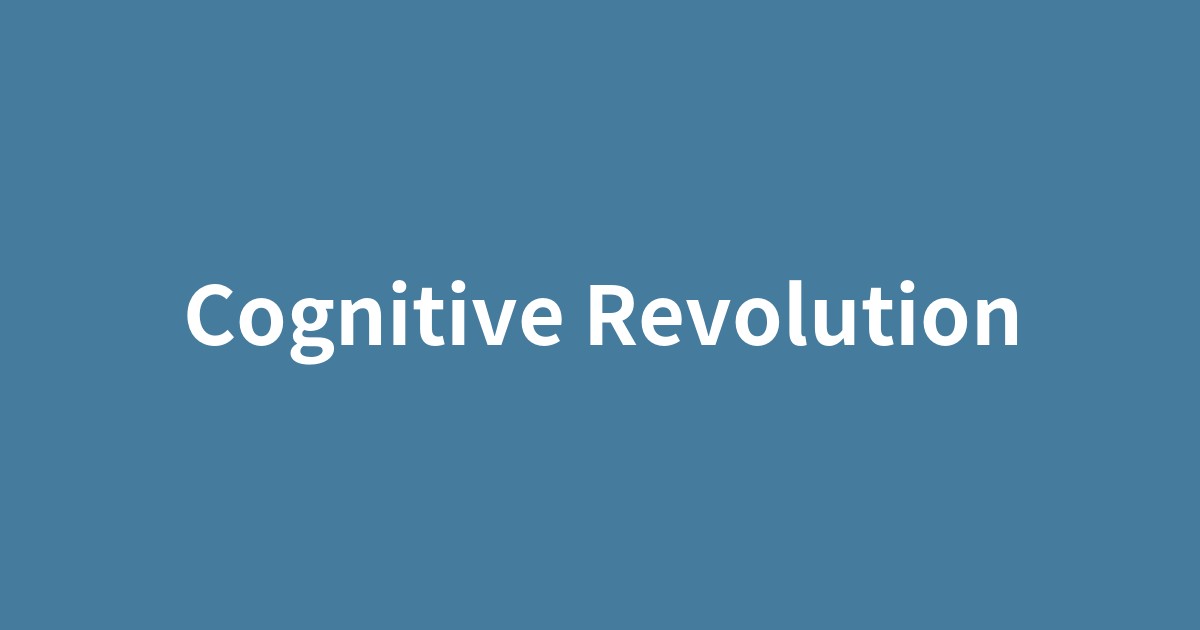このページは、歴史や文化の物語を楽しみながら、その文脈の中で重要な英単語を自然に学ぶための学習コンテンツです。各セクションの下にあるボタンで、いつでも日本語と英語を切り替えることができます。背景知識を日本語で学んだ後、英語の本文を読むことで、より深い理解と語彙力の向上を目指します。

行動だけでなく、その裏にある「認知プロセス(思考、記憶など)」を研究するべきだ。心理学にparadigm shift(パラダイムシフト)をもたらした認知革命。
この記事で抑えるべきポイント
- ✓20世紀半ばまで心理学の主流であった行動主義は、客観的に観測可能な「行動」のみを研究対象とし、心の内的なプロセスを「ブラックボックス」として扱っていました。
- ✓1950年代、コンピュータの登場や言語学の発展を背景に、人間の思考や記憶といった内的な「認知プロセス」を科学的に研究しようとする「認知革命」が起こりました。
- ✓認知心理学は、人間の心をコンピュータのように情報を処理するシステムと捉える「情報処理アプローチ」を基本的な枠組みとして発展したという見方が有力です。
- ✓認知心理学の知見は、現代のAI開発やUI/UXデザイン、教育分野など、私たちの生活に密接に関わる様々な領域で応用されています。
認知心理学の誕生 ― 人間の心は「コンピュータ」か?
私たちの心と、手元にあるコンピュータ。両者は一体、何が同じで、何が違うのでしょうか。今でこそ、脳の活動を画像で捉え、心の働きを探る研究は珍しくありません。しかし、ほんの数十年前まで、心理学の世界では人の心の中を直接覗き込もうとすることは「非科学的」な行為だと考えられていました。この記事では、その常識を覆した「認知革命」と、人間の心をコンピュータになぞらえて理解しようとした認知心理学の誕生の物語を紐解いていきます。
The Birth of Cognitive Psychology: Is the Human Mind a 'Computer'?
Our minds and the computers at our fingertips. What makes them similar, and what makes them different? Today, research exploring the workings of the mind by imaging brain activity is not uncommon. However, just a few decades ago, attempting to look directly inside the human mind was considered an 'unscientific' act in the world of psychology. This article unravels the story of the 'Cognitive Revolution' that overturned this conventional wisdom, and the birth of cognitive psychology, which sought to understand the human mind by likening it to a computer.
ブラックボックスとしての「心」― 行動主義の限界
20世紀の前半、心理学の世界を席巻していたのは「行動主義」と呼ばれる考え方でした。彼らの主張は明快です。科学である以上、客観的に観察・測定できるものだけを研究対象とすべきだ、と。個人の感情や思考、意識といった内的なプロセスは、本人にしか分からず、客観的な検証が不可能です。そのため、行動主義者たちは心の内側を「ブラックボックス」として扱い、研究の対象から意図的に外しました。彼らが注目したのは、ある「刺激(stimulus)」が与えられたときに、どのような「反応(response)」が返ってくるか、という関係性だけでした。このアプローチは、動物の学習実験などで大きな成果を上げましたが、次第にその限界も明らかになります。例えば、人間がどのようにして複雑な言語を習得し、創造的な文章を生み出すのか。同じ刺激を受けても、なぜ人によって反応が異なるのか。刺激と反応の関係だけでは説明できない、複雑な人間の行動の前に、行動主義は壁に突き当たったのです。
The Mind as a 'Black Box': The Limits of Behaviorism
In the first half of the 20th century, the field of psychology was dominated by a school of thought called 'Behaviorism.' Their argument was clear: as a science, psychology should only study what can be objectively observed and measured. Internal processes such as individual feelings, thoughts, and consciousness were unverifiable and thus intentionally excluded from research, treated as a 'black box.' Behaviorists focused solely on the relationship between a given stimulus and the resulting response. While this approach yielded significant results in areas like animal learning experiments, its limitations gradually became apparent. For instance, how do humans acquire complex language and produce creative sentences? Why do different people react differently to the same stimulus? Behaviorism hit a wall when faced with complex human behaviors that could not be explained by the stimulus-response relationship alone.
革命の狼煙 ― コンピュータと言語学が変えた流れ
1950年代、心理学の世界に地殻変動が起こります。後に「認知革命」と呼ばれるこの転換の引き金となったのは、二つの異なる分野からの衝撃でした。一つは、電子計算機、すなわちコンピュータの登場です。情報を入力し、プログラムに従って処理し、結果を出力するコンピュータの仕組みは、科学者たちに新しい視点を与えました。人間の心も、外部からの情報を取り入れ、内部で処理し、行動として出力する「情報処理システム」として捉えられるのではないか。この考え方は、ブラックボックスの蓋を開けるための鍵となりました。もう一つの衝撃は、言語学者のノーム・チョムスキーによる行動主義への痛烈な批判です。彼は、子供が有限の言語データから無限の文を生成できるのは、生得的な言語獲得の仕組みがあるからだと主張し、単純な模倣や学習だけでは言語習得を説明できないと論じました。この二つの流れが合流し、これまで無視されてきた「心」の内的プロセスを科学的に探求しようという機運が一気に高まったのです。
The Spark of Revolution: How Computers and Linguistics Changed the Game
In the 1950s, a seismic shift occurred in the world of psychology. This turning point, later known as the 'Cognitive Revolution,' was triggered by impacts from two different fields. One was the advent of the electronic computer. The mechanism of a computer—inputting information, processing it according to a program, and outputting results—gave scientists a new perspective. Could the human mind also be seen as an 'information processing system' that takes in external information, processes it internally, and outputs it as behavior? This idea became the key to opening the black box. The other impact came from linguist Noam Chomsky's sharp critique of behaviorism. He argued that children can generate an infinite number of sentences from finite linguistic data because they possess an innate language acquisition device, and that language acquisition could not be explained by simple imitation or learning alone. These two currents merged, rapidly building momentum to scientifically investigate the internal processes of the 'mind' that had long been ignored.
心は「情報処理システム」か? ― 新しい心のモデル
認知革命を経て誕生した認知心理学は、「情報処理アプローチ」をその中心的な枠組みに据えました。これは、人間の心をコンピュータとの強力な「アナロジー(analogy)」、つまり類推によって理解しようとする試みです。このモデルでは、私たちの認知プロセスは、情報が入力され(知覚)、貯蔵・検索され(記憶)、処理され(思考)、そして出力される(行動)一連のステップとして捉えられます。例えば、記憶の研究では、情報はまず短時間だけ保持される「短期記憶」に入り、その後に長期間保存される「長期記憶」へと転送される、というモデルが提唱されました。これはコンピュータのメモリ(RAM)とハードディスクの関係によく似ています。このように、心を情報処理システムとしてモデル化することで、それまで曖昧だった思考や記憶のメカニズムを、より具体的かつ科学的に分析することが可能になったのです。
Is the Mind an 'Information Processing System'?: A New Model of the Mind
Cognitive psychology, born from the Cognitive Revolution, established the 'Information Processing Approach' as its central framework. This was an attempt to understand the human mind through a powerful analogy with computers. In this model, our cognitive processes are viewed as a series of steps where information is inputted (perception), stored and retrieved (memory), processed (thought), and then outputted (behavior). For example, in memory research, a model was proposed where information first enters 'short-term memory' for brief retention, and is then transferred to 'long-term memory' for extended storage. This is very similar to the relationship between a computer's RAM and hard drive. By modeling the mind as an information processing system, it became possible to analyze the mechanisms of thought and memory, which had previously been vague, in a more concrete and scientific manner.
結論:心の探求は続く
この記事では、客観的な行動のみを研究対象とした行動主義の限界から、コンピュータの登場を契機とする認知革命を経て、認知心理学が誕生した歴史をたどりました。「人間の心はコンピュータか?」という当初の問いに立ち返ると、コンピュータというモデルは、心の働きを解明するための非常に強力な道具であったことは間違いありません。しかし、人間の持つ複雑な感情や直感、そして「私」という意識そのものを、情報処理の観点だけですべて説明しきれるわけではないことも、また事実です。それでもなお、認知心理学がもたらした知見は、現代のAI(人工知能)開発や、ウェブサイトのUI/UXデザイン、効果的な教育方法の開発など、私たちの生活を豊かにする様々な分野で応用されています。心の探求という壮大な旅は、これからも新しいモデルや視点を取り入れながら、続いていくことでしょう。
Conclusion: The Quest for the Mind Continues
In this article, we traced the history from the limitations of behaviorism, which studied only objective behavior, through the Cognitive Revolution sparked by the advent of computers, to the birth of cognitive psychology. Returning to the initial question, 'Is the human mind a computer?', there is no doubt that the computer model was an extremely powerful tool for elucidating the workings of the mind. However, it is also true that the complex emotions, intuition, and consciousness of 'self' that humans possess cannot be fully explained from an information processing perspective alone. Nevertheless, the insights brought by cognitive psychology are applied in various fields that enrich our lives, such as modern AI (Artificial Intelligence) development, UI/UX design for websites, and the development of effective educational methods. The grand journey of exploring the mind will surely continue, incorporating new models and perspectives along the way.
テーマを理解する重要単語
incorporate
ある要素を別のものの一部として「組み込む、取り入れる」という意味の動詞です。記事の最後で、心の探求という旅が、これからも新しい視点やモデルを「取り入れながら」続いていく、という未来への展望を示すのに使われています。様々な要素を統合するニュアンスを持つ、応用範囲の広い単語です。
文脈での用例:
We will incorporate your feedback into the next version of the product.
私たちはあなたのフィードバックを製品の次のバージョンに組み込みます。
acquire
知識やスキル、言語などを努力して「習得する、身につける」という意味の動詞です。この記事では、言語学者チョムスキーが「子供はいかにして複雑な言語を習得するのか」と問い、行動主義を批判した文脈で使われています。学習や発達に関するテーマで頻出する、応用範囲の広い単語です。
文脈での用例:
He believed that essential skills for success could be acquired.
彼は、成功に不可欠なスキルは習得できるものだと信じていました。
cognitive
「認知の、認識の」を意味し、知覚・記憶・思考といった心の知的活動全般を指します。この記事の主題である「認知心理学(Cognitive Psychology)」の根幹をなす単語です。行動主義が無視した「心の中のプロセス」とは何かを具体的に理解するために不可欠な概念と言えるでしょう。
文脈での用例:
As we age, some cognitive abilities may decline.
年を取るにつれて、いくつかの認知能力は低下するかもしれない。
intuition
論理的な推論によらず、物事の本質を瞬時に感じ取る「直感」を意味します。記事の結論部分で、コンピュータの情報処理モデルだけでは説明しきれない人間特有の能力の一つとして挙げられています。人間の複雑な精神性を語る上で、論理(logic)や理性(reason)と対比される重要な概念です。
文脈での用例:
She relied on her intuition to make the right decision.
彼女は正しい決断を下すために自身の直観を頼りにした。
analogy
「類推」や「類似」を意味し、ある事柄を、それと似た別の事柄になぞらえて説明する手法を指します。認知心理学が、人間の心をコンピュータの「情報処理システム」との強力なアナロジーによって理解しようとした、という記事の核心部分で使われています。科学的なモデル構築の手法を理解する鍵となります。
文脈での用例:
The teacher drew an analogy between the human brain and a computer.
先生は人間の脳とコンピューターとの類似性を指摘した(たとえ話をした)。
advent
特定の重要な出来事、発明、人物などの「出現」や「到来」を意味する、ややフォーマルな単語です。この記事では、認知革命の引き金となった「コンピュータの登場」という歴史的転換点を表現するために使われています。技術革新が社会や学問に与える影響を論じる文脈で頻出します。
文脈での用例:
The advent of the smartphone has changed our daily lives.
スマートフォンの到来は私たちの日常生活を変えた。
response
ある刺激(stimulus)に対して生じる「反応」や「応答」を意味します。行動主義心理学は、この観測可能な「反応」と「刺激」の関係性のみを分析対象としました。なぜこの単純なモデルでは複雑な人間の言語活動などを説明できなかったのか、記事の論旨を追う上で欠かせない単語です。
文脈での用例:
The 'fight-or-flight response' is a physiological reaction that occurs in response to a perceived harmful event.
「闘争・逃走反応」は、有害な出来事だと認識されたものに応じて起こる生理的反応です。
objectively
「客観的に」を意味する副詞で、個人の主観や感情を排し、事実に基づいて物事を観察・判断する態度を示します。行動主義が「科学的である」ために重視したのが、この客観性でした。この記事の文脈では、科学における客観性の意味と、それがゆえに「心」という主観的な領域を排除した流れを理解できます。
文脈での用例:
It's difficult to assess your own performance objectively.
自分自身のパフォーマンスを客観的に評価することは難しい。
stimulus
生物や組織に特定の反応を引き起こす外部からの「刺激」を指します。この記事では、行動主義が分析の対象とした「刺激(stimulus)と反応(response)」という関係性の片方を担う重要単語です。このS-Rモデルの限界を知ることが、認知心理学の登場を理解する第一歩となります。
文脈での用例:
The government is debating a new economic stimulus package.
政府は新たな経済刺激策を審議している。
framework
理論やシステム、計画などの「枠組み」や「骨組み」を指す名詞です。この記事では、認知心理学が「情報処理アプローチ」をその中心的な理論的枠組みとして採用したことを示しています。物事の構造や全体像を捉える際に非常に便利な単語で、学術やビジネスの分野で広く使われます。
文脈での用例:
We need to establish a legal framework to deal with this issue.
我々はこの問題に対処するための法的枠組みを確立する必要がある。
elucidate
複雑で分かりにくい事柄を「解明する、明瞭に説明する」という意味のフォーマルな動詞です。この記事では、コンピュータというモデルが、それまで曖昧だった心の働きを「解明するための非常に強力な道具」であったと評価する部分で使われています。科学的な探求の目的を示す格調高い表現です。
文脈での用例:
The professor used a diagram to elucidate the complex scientific theory.
教授は複雑な科学理論を説明するために図を使いました。
behaviorism
「行動主義」と訳され、客観的に観察できる行動のみを心理学の研究対象とすべきだとする考え方です。この記事では、認知心理学が乗り越えようとした「壁」として登場します。なぜ「心」がブラックボックスとされたのか、その背景にある思想を把握することが、認知革命の意義を理解する鍵です。
文脈での用例:
Behaviorism focuses on observable behaviors rather than internal mental states.
行動主義は、内的な心的状態よりも観察可能な行動に焦点を当てる。
conventional wisdom
「社会通念」や「従来の常識」を意味する表現です。この記事では、認知革命が覆した「心の中は非科学的で探求できない」という当時の心理学界の常識を指して使われています。歴史的な転換点や、古い考え方が新しい考え方に取って代わられる文脈を理解する上で重要なフレーズです。
文脈での用例:
The study challenges the conventional wisdom that you can't teach an old dog new tricks.
その研究は、老犬に新しい芸は教えられないという社会通念に異議を唱えるものです。
seismic shift
「地震(seismic)」が「地殻変動(shift)」を起こすように、「社会や考え方の根本的な大変化、激変」を意味する比喩表現です。この記事では、1950年代に心理学界で起こった認知革命の衝撃の大きさを示唆しています。単なる"big change"よりも劇的な変化のニュアンスを伝える表現です。
文脈での用例:
The internet has caused a seismic shift in the way we work and communicate.
インターネットは、私たちの働き方やコミュニケーションのあり方に地殻変動的な変化をもたらした。